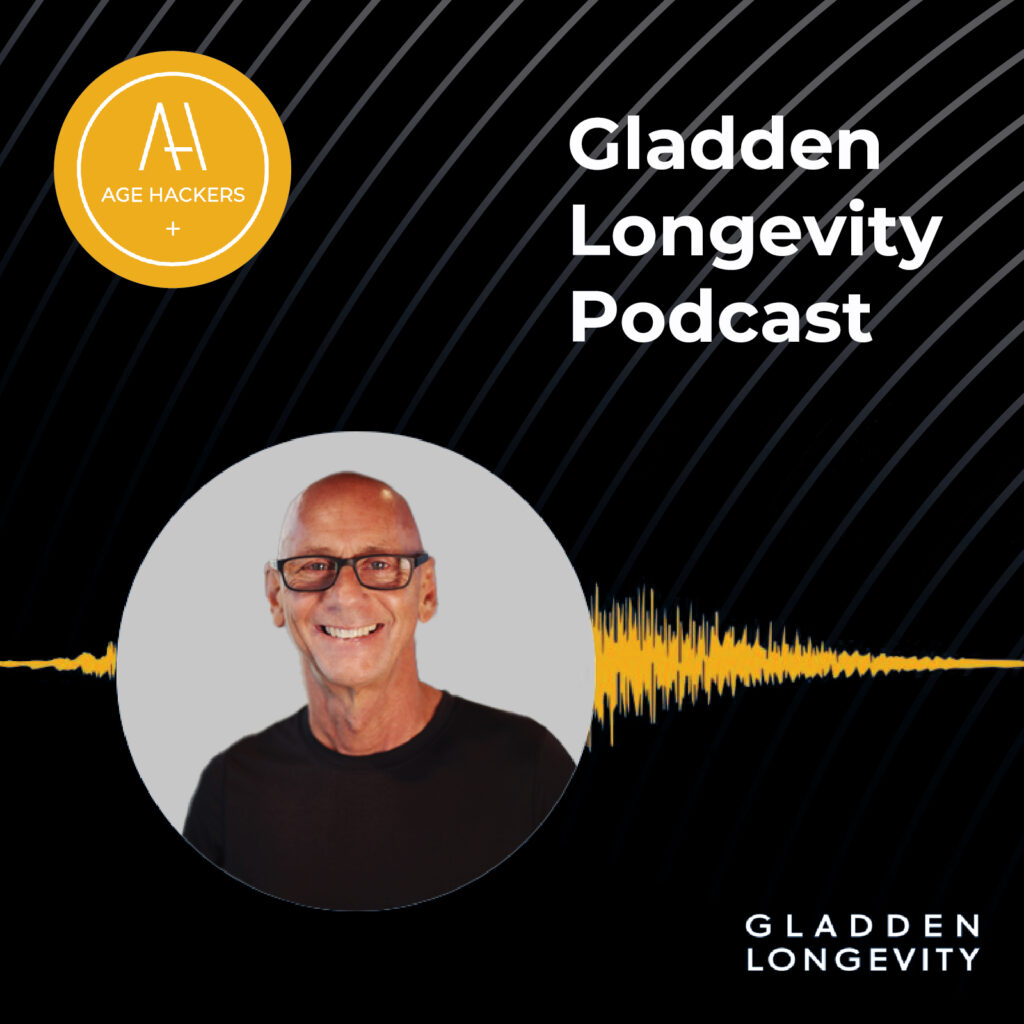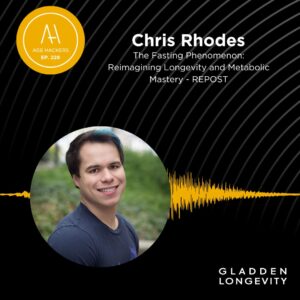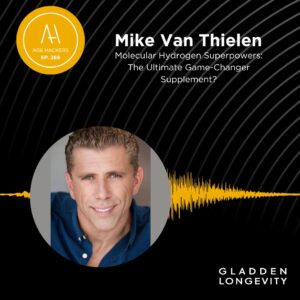Join Dr. Gladden on this conversation with Ryan Smith about epigenetic age testing and DNA methylation. Ryan has a biochemistry degree from the University of Transylvania. He went to medical school and started clinical rotations before realizing he didn’t want to be a doctor. That’s when he pivoted to the world of pharmacy, focusing on peptide synthesis, and opened up Tailor Made Compounding. Ryan has been very successful in his endeavors, with Tailor Made Compounding becoming the 4th fastest growing healthcare company at the time, investing in several other functional medicine spaces and, eventually, starting TruDiagnostic. This is a CLIA certified lab and health data company focused and committed to research with over 30 approved clinical research studies investigating the epigenetic methylation changes of a variety of longevity and health interventions. They have created one of the largest private epigenetic health databases in the world with over 13,000 patients tested and continue to lead the space in epigenetic methylation interpretation and diagnostic prediction. In this episode, him and Dr. Gladden discuss how epigenetic age testing and DNA methylation have evolved, the different kinds of clocks that exist now and what they measure, as well as the advances being made and envisioned in the disease prevention and age reversal spaces.
Listen to this episode to learn about making a hundred the new thirty, living beyond 120, and Living Young for a Lifetime!
Show Notes:
Show notes:
00:55 Dr. Gladden gives a description of this episode and an introduction of Ryan Smith.
02:20 Dr. Gladden explains why he is excited for this show.
03:15 Ryan introduces the audience to TruAge and tells us the big takeaway from this testing.
04:50 What is epigenetic methylation? What are the two main epigenetic marks? Ryan explains our DNA’s “on and off switches”.
05:57 Dr. Gladden clarifies what is being measured exactly.
06:29 The concept of methylation clock is introduced by Dr. Gladden, and he explains how it keeps track of the aging process but also contributes to it.
07:11 Dr. Gladden asks if Ryan’s company is measuring acetylation patterns as well.
07:17 Ryan talks about clinical trials where they are also measuring acetylation patterns and why it’s proven not to be ready for prime time large-scale investigation.
08:20 Dr. Gladden asks if they’re hitting a plateau in terms of accuracy with the amount of genes being tested.
09:02 Ryan explains why doubling the amount of genes being tested doesn’t necessarily translate into a doubling of accuracy.
09:09 How are they getting an insight into the path of physiology? Ryan talks about seeing what is changing and why it is changing, why this is the best way to capture the aging process (which is the biggest risk factor for chronic disease and death) and what questions they are trying to answer.
09:59 Dr. Gladden asks if they are hitting a plateau in cost-effectiveness.
10:49 Dr. Gladden tells the audience why they should care about this and what sets TruDiagnostic apart from other methylation companies. They can predict disease and mortality.
13:44 Ryan talks about the evolution of these algorithms and what people can expect from the reports of their testing.
14:40 Second and third generation clocks are introduced during this intervention before tackling their reports individually.
17:15 Dr. Gladden talks about the benefits gained from these reports/testing.
18:55 What can people do to impact their methylation? Ryan elaborates on the different types of interventions, from lifestyle changes to clinical interventions.
23:19 Dr. Gladden introduces very small embryonic-like stem cells and talks about how there’s data being recorded in some trials where these are moving the epigenetic age even 3 or 4 years back in time.
25:30 Ryan talks about what he’s seeing with plasma and plasmapheresis interventions. Explains why the results they’re seeing are giving them so much hope that these therapies might be one of the ways to reverse the clock.
29:30 Dr. Gladden explains why they can’t look at one data point and say that’s the answer in this field.
29:58 They introduce the DunedinPace algorithm for rate of aging, which is the first ever third generation algorithm. Ryan explains why it’s one of their favorites and how it is making things clearer and giving one of the best metrics they can offer.
35:00 Dr. Gladden talks about what they don’t have dialed in yet with these therapies.
35:19 Ryan describes how they’re trying to bridge the gap by providing answers to those “how long” questions with their data sets.
36:20 Will the system spring back to its natural age? Or will we be able to reset it? Dr. Gladden poses the question based on the concept of transient epigenetic aging.
36:58 Ryan talks about what he thinks is probably the most exciting area of age reversal right now.
38:49 Dr. Gladden asks Ryan how people can reasonably compare between companies doing this kind of testing and choose their best option.
40:40 Ryan explains the different tissues that can be used for testing and how that’s going to affect the algorithm’s results.
41:55 Ryan explains the importance of these algorithms’ (clocks’) precision.
43:20 Dr. Gladden talks about his experience with methylation ages in urine and how he uses it as a screening test.
44:53 Dr. Gladden introduces the GrimAge algorithm, which predicts when someone is going to die.
45:49 Ryan elaborates on the GrimAge algorithm’s excellence and explains how it is the most accurate and most predictive.
49:43 Dr. Gladden explains what methylation measurements are actually doing and what they mean for the audience.
51:16 Dr. Gladden asks Ryan his top 3 pieces of advice to optimize your longevity, health and human performance.
To learn more:
Instagram: https://www.instagram.com/trudiagnosticofficial/
YouTube: https://www.youtube.com/channel/UC408EGTLhAf8haqe1H5Ep_Q
Facebook: https://www.facebook.com/TruDiagnostic/







